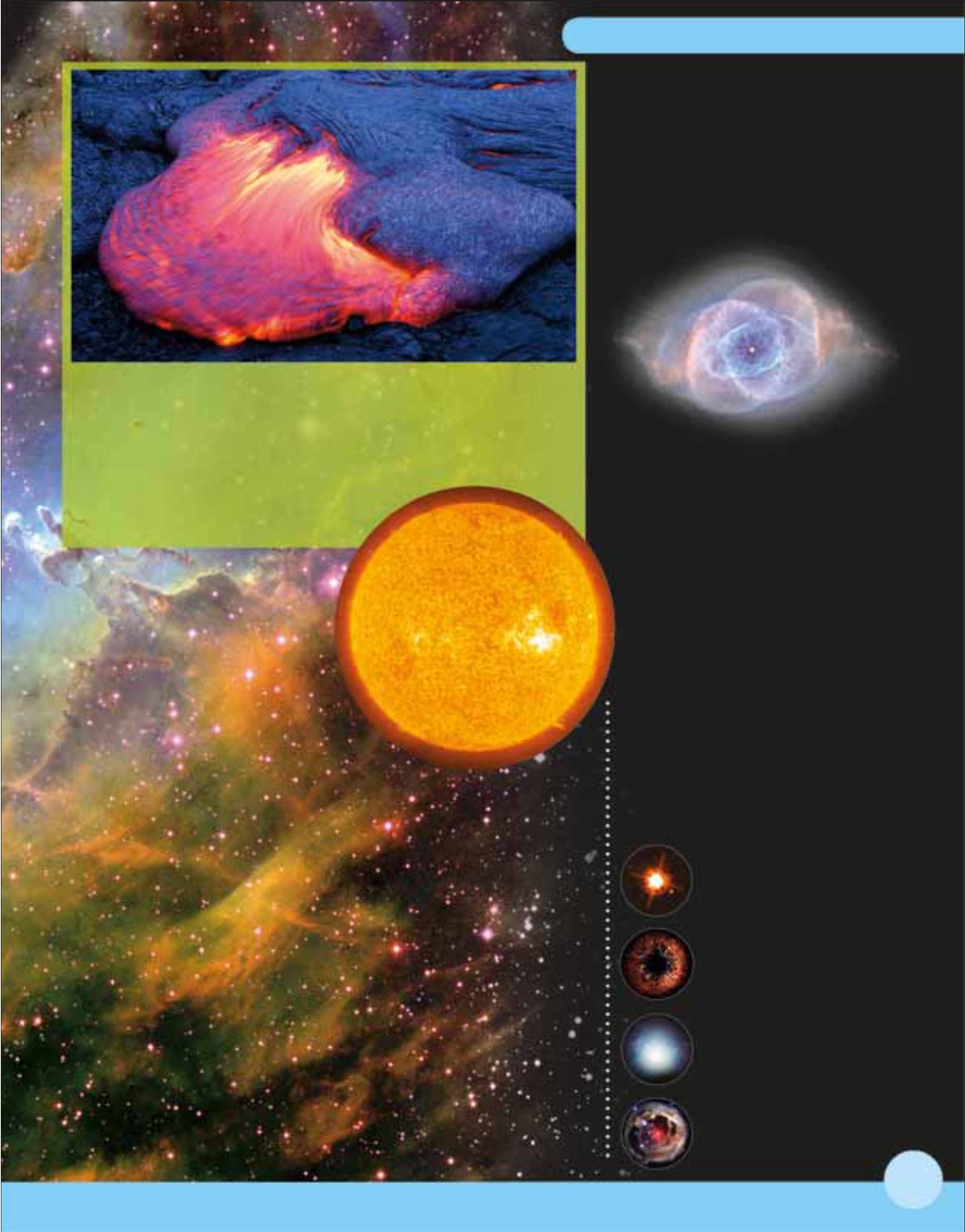
A star is born
The Pleiades, because you can see seven of its stars without a telescope.
Cat’s Eye
nebula
Young solar systems
Leftover
material from a star’s formation
can turn into planets.
Blue giants
are among the
hottest stars, and live for less
than 100 million years.
Supergiants
are the rarest
stars. They have short lives
– under 50 million years.
Red dwarfs
are smaller than
our Sun. They burn fuel slowly,
so they live a long time.
The life of a star
The Universe is home to lots
of different types of star.
Is that one red?
Some stars shine red, others shine
yellow or bluish white. A star’s
colour depends on its temperature.
Red stars are the coolest, while
blue stars are the hottest.
What type of star?
Stars have different characteristics
according to the amount of matter
involved in their birth. They
differ in colour, temperature,
and brightness, and in the
length of time they stay alive.
What’s in a name?
Horsehead, Lagoon, Eagle and
Cat’s Eye... some of the best-
known nebulae have popular
names inspired by their shape.
Our Sun is
a yellow
dwarf star.
In the same way, lava
reveals its temperature
through its colour.
Here, the yellow lava is
hotter than the red.
291


